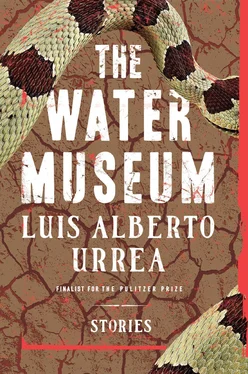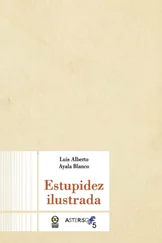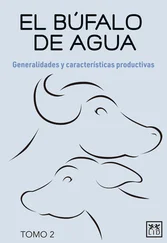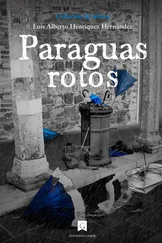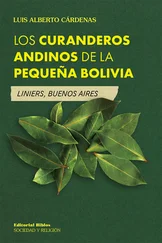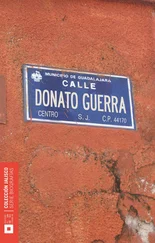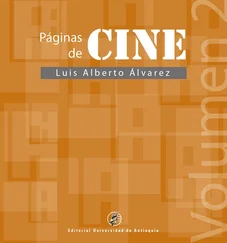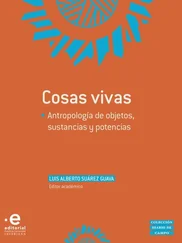Dexter was bending his ass off — like a reed, he told himself. Evergreen. Forever spring. Shit.
Araceli had created her first traditional turkey dinner. She was dying for them to sample this miraculous creation. Dexter didn’t think he could eat anything at this point. He was thinking chips and nacho cheese in front of the tube in his easy chair with the fat dog snoring and farting at his feet. He eyed Visser; the pastor seemed ready to eat any number of meals in a row. Juan simply looked miserable, rubbing his head.
“Ay, mi cabeza,” he said.
Visser dug around in his pocket and dropped a stone on the table. It clattered in front of Dexter. Dexter glanced down. “Arrowhead,” said Visser. “Found it in my garden.”
“Yeah,” said Dexter. “Found a million of ’em on the farm. Used to plow ’em up all the time. Gave ’em to the boy.” He sipped his beer. “He glued ’em on a board. Got it…somewhere.”
Juan fingered the arrowhead.
“Wow,” he said. Somehow, he turned it into Spanish. Guau.
Araceli delivered placemats and silverware and water to them. Then, with a flourish and a sly little wink at Dexter, she produced three plates piled with steaming turkey and deep purple beets and globs of cranberries and wads of orange sweet potatoes.
“Ah,” said Dexter.
“Ajua!” said Juan.
Visser was already eating.
But Araceli wasn’t done yet. She came from the kitchen bearing a Talavera pitcher that featured a primary color sun face smiling into the sad blue visage of a quarter moon. She came around the table and managed a deeply suggestive hip bump into Dexter’s shoulder with her good right hip.
“Don’t forget the bes’ part!” she enthused.
She bent over the table and proceeded to tip the pitcher over each plate and spill a thick white goo over everything. It covered the turkey and the yams and puddled all over each plate. Roughly the texture of heavy whipping cream. Dexter couldn’t, by God, tell what that was supposed to be.
“What is that?” he asked. “Gravy?”
Stung, Araceli backed away from the table and clutched the pitcher to her heart.
“Is los mash potatoes!” she cried and ran to the kitchen in humiliation. They could hear her crying in there.
Dexter rose.
“God. Damn. It,” he announced. “Look here. This is my country. This is my country. We been here, working this land, forever. We made our lives here. We planted crops here. We had our children and — and we buried our loved ones here. Right here! Is it too goddamned much to ask that somebody pay the slightest fucking attention to our traditions and history and stop wrecking everything? Could you learn the language? Could you cook a simple meal that anybody from here would recognize as real food? Am I asking too much?”
He was red in the face and shaking. He was embarrassed about the whole thing — ashamed of his comment to Araceli, ashamed to have shown his emotions, ashamed that he had tears in the corners of his eyes. Outbursts were simply not the West Linden way.
Reverend Visser just stared at his own hands with his head bowed. Juan fingered the arrowhead, spun it around and around with one finger. He didn’t want to eat the goopy mash potatoes either. “Yeah, Jefe. That’s what Geronimo said.”
Dexter stared at him. They heard Araceli blow her nose. Visser cleared his throat as if to speak, but apparently thought better of it. Juan spun the arrowhead, and Dexter wondered what tribe it had come from.
He sat back down.
He put his napkin in his lap.
He took up his fork and his knife and he bent like a reed in the wind.
“I expect you two,” he said, “to eat every bite.”
The rest was silence.
Twelve. Welcome to the Water Museum
Fat orange light squatted in the brown sky. It wasn’t like that every day — most days were stained-glass blue. But the dust and the smoke tended to hang there more and more. Old-timers told Billy they’d give a dollar to see a good old-fashioned gray sky full of rain. He rode his bike down County Road 120, no cars in sight. And no clouds. Somebody had painted Droughty Road on the signs. That was pretty funny, he thought. The corn and soybean fields were so toasted they were just dirt fields now. Billy couldn’t remember the last time he’d seen a cow.
Big white wind propellers turned slowly. The kids called them sunflowers. The towers reminded Billy of those crazy alien machines from War of the Worlds. He really liked that one. He and his boys would fight the windmill towers with BB guns and slingshots.
The ground was crazed in crack patterns like in the westerns Pops loved, but the boys didn’t like those so much.
Billy watched Pops out there in the field, standing between his pickup and the army water unit. Home from work early and working again, but as he pointed out every day — chores were never done. Pops trudged like a mule from job to job. Billy waved. Pops stood there staring at him, then waved back. At least that run of one-hundred-degree days had broken.
A trio of helicopters chugged in the distance, going from east to west. Daily rounds, checking the last crops. They looked like crows, Pops liked to say. Later in the afternoon, they’d show up on the north side of the road, flying from west to east. Going back to base.
Billy biked across the field, ramping off a couple of the crumbly old furrows. He skidded to a halt near Pops and grinned. Dust. Pops waved his hand in front of his face and coughed. He had a big plastic keg attached to the spigot at the foot of the unit.
“Thing about drought, Bill,” he said, “is the air gets baked.”
Billy had heard this a million times.
“Ain’t just the dirt. The air gets thirsty. Sucks the water out of the dirt, the plants. And then the sun sucks it out of the air. Till there ain’t no water no more.”
Mom would never allow Billy to talk like Pops did. Oh no. Billy had a B+ in English, and Mom wanted him to do even better. She even tried to talk in some kind of made-up elegant way, as if anybody ever really talked like that. Not even his teachers were so phony. They had little bottles of cold water in school. The kids were always thirsty. Higgins and Charlie said it was recycled pee. That grossed him out, but by about 11:00 and 2:00 every day, he didn’t care and drank up.
“Way this here works,” said Pops, patting the sci-fi-looking tower, “is some bunch of chemicals is all stacked up inside, in cakes. This shell is mesh, see.”
“Uh-huh,” he said, just to say something.
Billy looked down Route 120. Big flat sheets of land going on forever. Steel sunflowers, most of them rotating. Marching away, smaller and smaller till they blinked out in the yellow distance. He’d heard about the chemicals, too. He’d been here when the army installed them. He’d even read the manual. The Corps of Engineers guy had made it sound like they were going to have swimming pools soon with all the water from the tanks.
“And,” said Pops, “the chemicals attract water through condensation. Can you spell that, Bill?”
“Sure,” hoping Pops didn’t give him a quiz right there.
“Idea was water in the air, free for the taking. So the chemicals suck that moisture out of the air and pass it down here through the filter and into the jug.”
Billy looked into the jug. Its white plastic showed the waterline as a gray shadow. Only about two inches had accumulated.
“How long?” he asked.
Pops put his hands in his back pockets, kicked a clod. They watched it bounce away, tossing up small explosions of dust.
“A week.”
“Jeez,” Billy said.
“Even the air, Bill. Even the goddamned air.”
Billy rolled the bike back and forth.
Читать дальше
